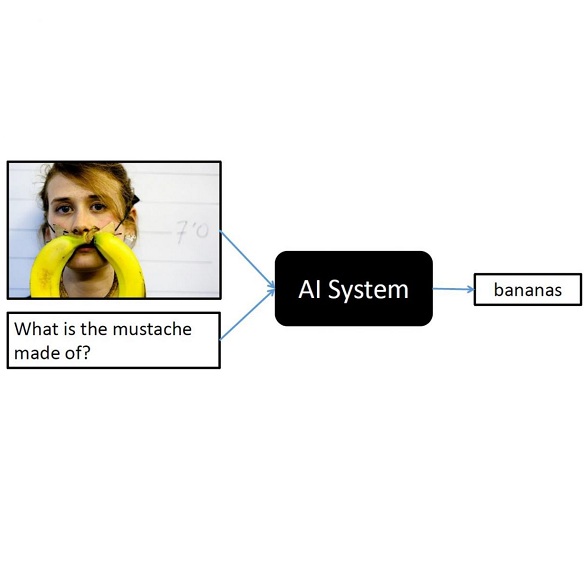Visual question answering (VQA) requires systems to perform concept-level reasoning by unifying unstructured (e.g., the context in question and answer; "QA context") and structured (e.g., knowledge graph for the QA context and scene; "concept graph") multimodal knowledge. Existing works typically combine a scene graph and a concept graph of the scene by connecting corresponding visual nodes and concept nodes, then incorporate the QA context representation to perform question answering. However, these methods only perform a unidirectional fusion from unstructured knowledge to structured knowledge, limiting their potential to capture joint reasoning over the heterogeneous modalities of knowledge. To perform more expressive reasoning, we propose VQA-GNN, a new VQA model that performs bidirectional fusion between unstructured and structured multimodal knowledge to obtain unified knowledge representations. Specifically, we inter-connect the scene graph and the concept graph through a super node that represents the QA context, and introduce a new multimodal GNN technique to perform inter-modal message passing for reasoning that mitigates representational gaps between modalities. On two challenging VQA tasks (VCR and GQA), our method outperforms strong baseline VQA methods by 3.2% on VCR (Q-AR) and 4.6% on GQA, suggesting its strength in performing concept-level reasoning. Ablation studies further demonstrate the efficacy of the bidirectional fusion and multimodal GNN method in unifying unstructured and structured multimodal knowledge.
翻译:暂无翻译



